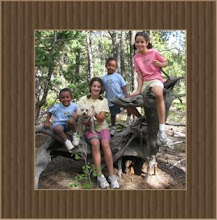This article is re-posted with permission from Ethica. This is an awesome site for information regarding adoption ethics. There are pages for all countries engaging in international adoption. Check them out at Ethica.
Ethica’s notes from U.S. Department of State meeting – Ethiopia Adoption: Solutions into Action
January 28, 2011
On Monday, January 24, 2011, the U.S. Department of State (DOS) hosted a meeting for stakeholders in Ethiopian adoption. Ethica will post the official DOS minutes as they are available.
Ethica was present at the meeting. The following are Ethica’s notes from that meeting.
Ethiopia Adoption: Solutions into Action – January 24, 2011
Overview:
*Adoptions are mostly from two regions of the country.
*80% of the adoption cases are relinquishment cases, majority relinquished by one birthparent. Most have siblings. In the earlier phase of adoptions from Ethiopia, the youngest children in a family were relinquished; increasingly it is the middle and older siblings in a family.
*40% of the children involved are under the age of two; 25% are between 2-4 years old, and 35% are over the age of 4.
*90% of the cases handled by the U.S. Embassy call for further investigation for clarification of facts. The kinds of abuses they are seeing relate to misrepresentation of facts and concealment of facts in hopes of making the process going more quickly, including a false perception that if there is no birthparent reported that the case will move more quifathersckly (so will say that they are uncles, for instance). The problems in Ethiopia begin at the local level long before the children reach Addis.
*There are 22 licensed US ASPs (Adoption Service Providers) in Ethiopia, but over 70 who operate there. There is a lot of umbrella-ing.
*The top 10 ASPs account for 67% of all adoptions from Ethiopia.
Vulnerabilities:
*There is no central mechanism for referrals for children.
*There are three different parts of the Ethiopian government that have jurisdiction over adoptions: Ministry of Justice (MOJ), Ministry of Women’s Affairs (MOWA), and Charities and Societies, which registers NGOs and ASPs
*MOJ evaluated 200 orphanages; recently indicated that they were planning on closing 50 of them due to malfeasance
*MOWA has an office of 5 people to review all adoption cases; the process requires two reviews of adoption cases.
*ASPs choose orphanages to work with, orphanages choose ASPs; there is neither transparency nor regulation in this process
*Irregularities are found after the adoption is finalized and the child is legally the child of American parents.
*Expediting the process means that there is not enough time for due diligence
*There is no standardization of fees, no standard fee structure
*Lack of monitoring at the local level
*At one point, it seemed that there was some movement toward Ethiopia becoming a Hague Convention country, but it does not appear to be on the agenda now.
Investigation of children’s backgrounds:
ASPs are inconsistent in their due diligence in investigating children’s backgrounds. In one example, a 6-year old child was found abandoned at a bus station and kept in an orphanage for 1.5 years. The first time the child was asked about his biological parents was during his visa interview at the Embassy, and he told the officials the name and address of his biological parents. This information could have easily been procured prior to this point.
Some adoption agencies do more due diligence than others, with social workers and investigators operating in the best interests of the child. Some ASPs create lifebooks as an investigative tool so they have more information on the child prior to court. The life book includes video interviews of the parents, neighbors and others involved in the case, and they document evidence of the child’s background, how s/he came into care, and provide timelines. Other agencies are passing along paperwork that the agency has failed to look at themselves which show discrepancies, missing information and clerical errors; one example provided was a document that stated in one place that “father unknown” and in another place, “tried to call father; no answer.”
The Transparency Survey administered by Ethica can provide some information into the different practices of agencies (found
here).
The US government is increasing scrutiny and increasing field investigations based on fraud markers they’ve observed. They continue to collect detailed tracking information on all cases to detect patterns.
Hague accredited agencies are not necessarily operating in a transparent and ethical manner, either. Most agencies are not investigating kids’ histories across the board, Hague accredited or not.
Part of the problem is umbrella-ing. It is necessary to examine the connections between all organizations and determine whether those relationships are appropriate. They want to become more rigorous in their investigations. It was also suggested that reputable agencies will broadcast clearly the problems that are happening in Ethiopian adoptions. We encourage families to register their complaints with COA about problem agencies if those agencies are Hague-accredited.
Current situation in Ethiopia:
*As the number of children coming out of Ethiopia increase, there are increasing concerns about their well-being, particularly in a country that lacks the infrastructure necessary to support the numbers. There are increasing attachment issues in children coming from Ethiopia.
*There is a dichotomy in agency practices: on one end of the spectrum, agencies that go into the village, interview leaders in the village, families. On the other end of the spectrum, child is not asked about their circumstances and paperwork is suspicious. There are significant concerns about how children come into care. There are also concerns in the fact that the children now stay in the government orphanage before coming to transition homes.
*There are significant development projects in Ethiopia as a result of adoption agency involvement that affect far more than the children who are adopted.
*Adoptive parents’ entitlement are one of the most damaging issues in Ethiopian adoption. There have been reports of parents hitting their children, yelling at their children. This is extremely harmful to newly adopted children and has serious consequences for the future of the program. This is why APs are now required to stay in guest houses. There needs to be a real change in the way parents behave in country.
Speed of the process:
*From the USG perspective, it is fairly expeditious. If the agency provides appropriate and reliable paperwork, and the Embassy knows that the agency did its due diligence, they can act more quickly. The delays are often on the Ethiopian side, especially because of the limited resources of MOWA and MOJ.
*One big issue is that the USG is often seen as the “bad guy” when they have to disclose to the AP that the child being referred has two living parents who want to parent. This is not the fault of the Embassy.
“The way forward” panel
*PL 109-95 mandates a consistent, coordinated, effective approach to helping orphaned and vulnerable children (OVC). It includes 7 US government agencies and PEPFAR. One can find all of the USG projects to address OVC
here (this is mandated by PL 109-95).
*There are significant concerns about coercion, paperwork irregularities. The increase in adoptions from Ethiopia did not coincide with an increase in family options, which is notable and concerning.
Take-home messages for adoptive parents:
1) Agency selection is critical for prospective adoptive parents. Select an agency that has a solid track record of investigating children’’ histories and knowing their facilitators and the situations in which children come into care. PAPs should avoid agencies that umbrella and sign only with Hague-accredited agencies that are legally allowed to operate in Ethiopia. It is highly advisable to join adoption agency research internet groups to fully vet one’s agency choice.
2) Adoptive parents should seek out pre-adoptive education on child development and attachment. They should check their attitudes when in-country, but more than that, realize that practices such as hitting, smacking, or yelling at children are extremely harmful for both the children themselves and the future of the program.
3) When a Hague-accredited agency presents inconsistent paperwork or the adoptive parents have ethical concerns about their adoption in the process of completing their adoption,, PAPs and APs are strongly urged to report the behavior to the Department of State here. If it is a non-accredited agency that behaves unethically, the Department of State would still like to hear about it; families can email askci@state.gov. For questions about making a complaint, families can email Ethica at ethicainfo@gmail.com.
4) It cannot be overstated that we urge adoptive parents to use only Hague accredited agencies and ask many questions about a referral once it is made about the circumstances surrounding the child’s history. For more information or help determining whether an agency is Hague-accredited, contact us: ethicainfo@gmail.com.
You can also check out the article on the same event from PEAR Parents for Ethical Adoption Reform













































